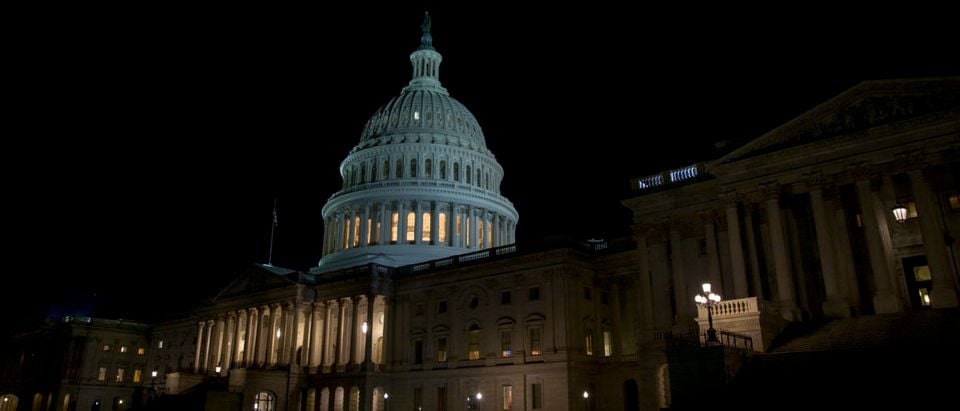On Jan. 3, the 116th Congress of the United States will convene, and our country will enter a period of divided government. But divided government need not mean stagnation, inaction and retraction into partisan corners.
Make no mistake, President Trump will continue to win for the American people, and he has already signaled he’s ready to work on a bipartisan basis.
For two years, he has shown his ability to win at a time of unified Republican control of Congress; over the next two years, he will once again show his ability to govern in the face of a Democratic-controlled House that has vowed to investigate and subpoena.
Come 2020, the American people will reward him for his consistent effort to push forward the agenda of the American people in the face of a Democratic Party far more interested in obstructing and resisting.
In the weeks following the midterm elections, both President Trump and potential Speaker Nancy Pelosi issued calls for bipartisanship. But Trump did not just do so in word, he did so in action.
On Nov. 23, President Trump reissued a call for criminal justice reform, tweeting, “really good Criminal Justice Reform has a true shot at major bipartisan support. [Majority Leader] McConnell and [Minority Leader] Schumer have a real chance to do something so badly needed in our country… would be a major victory for ALL!”
The First Step Act — a comprehensive criminal justice reform package — passed the House overwhelmingly with a 360-to-59 vote. It currently awaits a vote in the Senate, and under the leadership of President Trump and Senior Adviser Jared Kushner, bipartisan victory is possible.
And not just on criminal justice reform. President Trump has repeatedly offered deals to Democrats over the last two years. On immigration, he offered a path to legalization for Deferred Action Childhood Arrival (DACA) recipients in exchange for border wall funding and chain migration.
On infrastructure — an issue Democrats have made calls to action on for years — Trump put forth a legislative framework. But in both cases, Democrats were uninterested in getting to work.
While there is significant overlap between the Republican and Democratic agendas and ample opportunity for Trump to prove a successful navigator of divided government, he needs a willing negotiating partner. Thus far, he has found very few on the left.
In a recent Rasmussen poll, 68 percent of likely voters said, “it is more important for the new Democratic majority in the House of Representatives to focus on policy areas where it can work with the president and his fellow Republicans.” Meanwhile, only 26 percent of voters said that impeachment should be the focus of the incoming Democratic majority.
Nevertheless, Democrats thus far have proven themselves out of step with the wishes of the American people, as calls for investigations and subpoenas have become a frequent left-wing talking point with a top Democrat saying they are readying a “subpoena cannon.”
But as Democrats prepare their agenda of obstruct, resist, and investigate, Majority Leader Mitch McConnell has issued a public call for working across party lines, writing “Will Dems work with us, or simply put partisan politics ahead of the country?”
McConnell noted several bipartisan achievements produced by the Senate already: opioid crisis legislation crafted by 72 different senators, a unanimous vote for resources to expand technical and career training, and 22 bills crafted on a bipartisan basis in the Veterans’ Affairs Committee alone.
Even after the Democrats took back the House and Republicans increased their Senate majority, a major bipartisan development happened in the passing of the bipartisan Build Act, a new law moved forward by Senior Adviser Ivanka Trump that changes development policy and will “spur renewed private investment in regional infrastructure,” as Vice President Mike Pence noted.
It represents “[t]he biggest step forward in U.S. development policy” in 15 years, according to the Center for Global Development, and it was done in an act of bipartisan compromise.
The Senate has demonstrated that meaningful change and compromise is possible where there is a will. In offering deals on immigration, infrastructure, and prison reform, President Trump has demonstrated that he is ready for compromise. But will Democrats take up his offer?
Rather than depriving Trump of political victories, Democrats ought to focus on delivering victories for the American people. Whether the left will exchange partisanship for pragmatism remains to be seen, but one thing is certain: Divided government will showcase what President Trump does best — making deals with seemingly immovable parties on the opposite side of the table.
Come 2020, he will be rewarded handedly.
Kayleigh McEnany (@KayleighMcEnany) is the author of the “New American Revolution: The Making of a Populist Movement.” She is the Republican National Committee’s national spokesperson and a former CNN commentator who received her JD from Harvard Law School.
The views and opinions expressed in this commentary are those of the author and do not reflect the official position of The Daily Caller.


